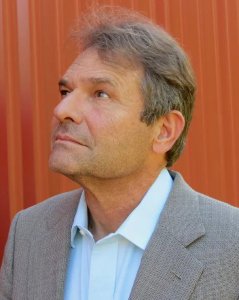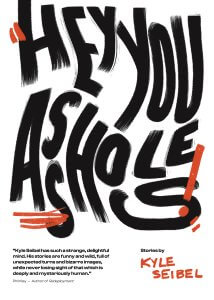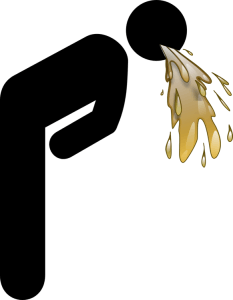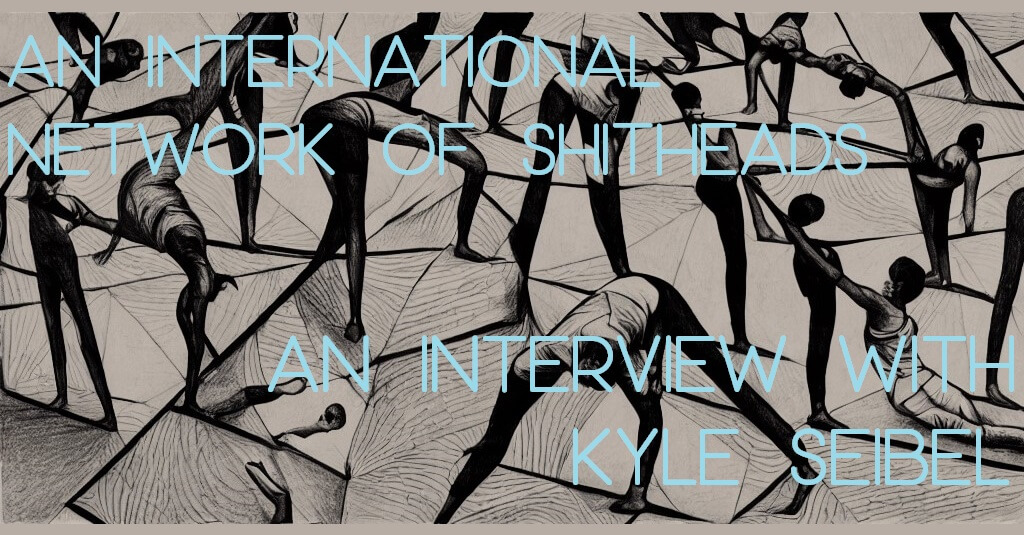By the time I get around to asking Kyle my first interview question, he’s already asked me a dozen questions about my writing life and, unprompted, recounted his entire life story. My pen (a ballpoint, no less!) can barely keep up and nearly runs dry by the end of the interview. Kyle is a chatty pragmatist, a veteran, a writer of fiction, and a nice guy—an unusual collection of personal qualities to encounter anywhere, much less on Twitter. But that’s where I, like many other fans of his fiction, found him. Despite my lack of press credentials, he agreed to an interview right away, even refusing the limited-edition Hall of Fame baseball I offered as a bribe. Like I said, a nice guy.

In the past few years, Kyle has churned out an impressive array of short stories and flash fiction pieces that’ve been published, about one per month, in a slew of literary publications. He’s written variously about friendship, guilt, love, spontaneous deaths following celebrity sightings, Navy sailors, melting cars, the former mayor of Baghdad, and talking dinosaurs. To narrowly categorize his work is a difficult, and probably pointless, task. What strikes—or rather, bludgeons—me most about Kyle’s writing is his characters’ unflinching emotional honesty in the face of soul-crushing absurdity. It’s a strikingly positive take on the human condition in 2023.
THE PATH TO WRITING
A native Ohioan, Kyle went to the University of Missouri for undergrad, then spent seven years serving in the Navy, including overseas deployment. After leaving the service, he began a career as a copywriter, eventually ending up in sunny Santa Barbara, California, where he still lives. All along, he dreamed of moving his life in the direction of writing fiction. “I always took a certain pride in my writing…even when I was writing memos in the Navy.”
 “[After the Navy] I knew I wanted to write, but I didn’t want to struggle financially, so I interviewed at an ad agency in St. Louis with zero experience in marketing. The interviewer asked if I’d ever written an ad. I said, ‘No.’ He said, ‘I can tell. But that’s all right. We can teach you how to write an ad. It’s easy. What we can’t teach you is how to write a story.” Kyle proved he could write a story and got the job. Refreshingly, Kyle is not one of those writers who feels debased by their day job. In fact, he says he enjoys it. “[Writing copy] combined the world of stories that I already loved with this world of craft. Pitching campaigns [became] an outlet for me.”
“[After the Navy] I knew I wanted to write, but I didn’t want to struggle financially, so I interviewed at an ad agency in St. Louis with zero experience in marketing. The interviewer asked if I’d ever written an ad. I said, ‘No.’ He said, ‘I can tell. But that’s all right. We can teach you how to write an ad. It’s easy. What we can’t teach you is how to write a story.” Kyle proved he could write a story and got the job. Refreshingly, Kyle is not one of those writers who feels debased by their day job. In fact, he says he enjoys it. “[Writing copy] combined the world of stories that I already loved with this world of craft. Pitching campaigns [became] an outlet for me.”
Working in advertising got Kyle’s creative juices flowing. He continued to read voraciously, as he always had. Then the pandemic happened: “During the pandemic, there was a lot of new focus on short fiction by people who didn’t normally read it.” The lockdown inspired Kyle to begin writing his own stories in earnest. His goal was to get one short story or flash fiction piece published per month. “I wanted a lot of practice,” he says coolly. It’s a goal he has consistently accomplished over the past few years, using a strategic approach of “writing and submitting in sprints,” which was inspired by his marketing training. In essence, writing became Kyle’s second job.
ON INFLUENCES & WHAT’S TO COME
 Asked about his literary influences, Kyle rattles off his beloved A-list: “Denis Johnson, Raymond Carver, Scott McClanahan, Arthur Bradford…their writing is in my heart.” The muscular, contemporary American prose (less chuck roast, more ribeye) that characterizes these authors certainly emanates from Kyle’s writing as well. Along those lines, he also mentions short story masters George Saunders, Sam Pink, and Mark Leidner as influences, and he’s always looking for new fiction to consume. “I try to read a balance of classic and contemporary. My writing partner and I are planning on doing a deep dive of Salinger next month. I’ve never even read Franny and Zooey!”
Asked about his literary influences, Kyle rattles off his beloved A-list: “Denis Johnson, Raymond Carver, Scott McClanahan, Arthur Bradford…their writing is in my heart.” The muscular, contemporary American prose (less chuck roast, more ribeye) that characterizes these authors certainly emanates from Kyle’s writing as well. Along those lines, he also mentions short story masters George Saunders, Sam Pink, and Mark Leidner as influences, and he’s always looking for new fiction to consume. “I try to read a balance of classic and contemporary. My writing partner and I are planning on doing a deep dive of Salinger next month. I’ve never even read Franny and Zooey!”
A few days before this interview, Kyle posted on Twitter “first draft done” alongside a photo of a novel manuscript cover page. I asked him about what led him to want to tackle a novel when his wheelhouse is short fiction. “I took a walk with my girlfriend (now wife) and told her I’m gonna write a book someday. And she said, ‘All right, make it happen.’ So, then I wrote Skylarking.”
Kyle describes Skylarking as a novel about misfits goofing off wrapped in a story about the search for purpose and meaning.  The narrative follows Arthur, who is attached to a Navy “Seabee” (C.B. is shorthand for Construction Battalion), much like Kyle himself was. Carefully tracking with real life events in Iraq and Afghanistan circa 2012, Arthur’s fictional battalion is in its last year of service before being decommissioned, as the US deescalates its military presence in the region.
The narrative follows Arthur, who is attached to a Navy “Seabee” (C.B. is shorthand for Construction Battalion), much like Kyle himself was. Carefully tracking with real life events in Iraq and Afghanistan circa 2012, Arthur’s fictional battalion is in its last year of service before being decommissioned, as the US deescalates its military presence in the region.
Kyle says he wrote Skylarking with a mind to US Marine veteran Phil Klay’s much-lauded Redeployment, which won the 2014 National Book Award. He also points to Sherwood Anderson’s classic 1919 short story cycle Winesburg, Ohio, and Tim O’Brien’s 1990 collection, The Things They Carried, as major influences on his first novel. It won’t be the first time Kyle’s written about US Navy sailors (see his stories “Master Guns” or “Lovebirds”), but it’s the first time his readers will be treated to an extended narrative with the same characters and setting.
ON TWITTER
I ask Kyle what it’s like to have published over 14,400 tweets on his Twitter account (@kylerseibel). He bursts out laughing. “Ha, that’s embarrassing!” then pulls out his phone to confirm. Although Elon’s little blue bird has grown increasingly controversial within the writing and publishing community, it is still an undeniable hub of literary people.
 As Kyle gleefully puts it: “Twitter is an international network of shitheads…it’s the ‘water cooler’ for writers [where many of us] are able to find a broader audience.” Kyle’s Twitter account stands out from those of other writers because of the well-tailored balance of content he puts out daily. The meat and potatoes (sub. tofu and kale, if needed) of his posts are good, old-fashioned wisecracks, great-uncle-worthy literary puns, and shout outs to other authors’ work and accomplishments. His self-promotional posts are, intentionally, in the minority. Per the man himself, “Connecting with other writers in a meaningful way is way more valuable than self-promotion. Constantly hawking your shit [on Twitter] is pathetic.” He says the platform is also useful as a reader. “Reading recommendations from Twitter fill my TBR. I find a lot of great stuff on there.”
As Kyle gleefully puts it: “Twitter is an international network of shitheads…it’s the ‘water cooler’ for writers [where many of us] are able to find a broader audience.” Kyle’s Twitter account stands out from those of other writers because of the well-tailored balance of content he puts out daily. The meat and potatoes (sub. tofu and kale, if needed) of his posts are good, old-fashioned wisecracks, great-uncle-worthy literary puns, and shout outs to other authors’ work and accomplishments. His self-promotional posts are, intentionally, in the minority. Per the man himself, “Connecting with other writers in a meaningful way is way more valuable than self-promotion. Constantly hawking your shit [on Twitter] is pathetic.” He says the platform is also useful as a reader. “Reading recommendations from Twitter fill my TBR. I find a lot of great stuff on there.”
ON THE STATE OF SHORT FICTION
I ask Kyle about trends he’s seeing in short fiction. Perhaps unsurprisingly, his answer veers toward a different literary form: “A lot of people are writing creative non-fiction, big essays in The Sun and Esquire…which capture a public mood,” and encourage a “deep, personal intimacy” between writer and reader. However, Kyle says that he’s only mildly interested in writing creative non-fiction himself. As he describes it, a significant part of his writing process involves the removal of himself from his narratives: “chopping them up, rewriting, and making new material.” In other words, starting with non-fiction and transforming it into fiction.
 When I ask if he’s been pressured into writing longform fiction (i.e., novels) to become more commercially and critically successful, Kyle just laughs. “Yup.” It’s been the oft-told sob story of short fiction writers for decades now, that most short story collections of any genre just don’t sell in a mass market dominated by popular fiction novels. By and large, the Big 5 publishers only publish short story collections written by famous authors, which means small, independent presses, university presses, and literary magazines do most of the legwork in shortform publishing.
When I ask if he’s been pressured into writing longform fiction (i.e., novels) to become more commercially and critically successful, Kyle just laughs. “Yup.” It’s been the oft-told sob story of short fiction writers for decades now, that most short story collections of any genre just don’t sell in a mass market dominated by popular fiction novels. By and large, the Big 5 publishers only publish short story collections written by famous authors, which means small, independent presses, university presses, and literary magazines do most of the legwork in shortform publishing.
Kyle insists that the publishing industry’s disregard for short story and flash fiction collections is “disingenuous, a missed opportunity artistically to affect people,” and that “just because [shortform writing] is harder to sell, doesn’t mean it’s less valuable…There’s an appetite in the market for short stories and flash fiction.”
In the end, as is his wont, Kyle strikes an optimistic tone. Although the short fiction market is small compared to novels or longform creative non-fiction, he thinks the uptick in reading worldwide since 2020 can only benefit short fiction writers, who hold a “more intimate” relationship with their readership. “There are still publications that can accelerate an author’s career,” he says, providing for example the publication of “At This Week’s Meeting of the Young Mountain Movers” in Taco Bell Quarterly. Soon after the issue went live, Kyle was contacted by Joyland requesting a piece to publish (“Mr. Bananaman”).
ON AI
Because everyone and their AI-generated dog/astronaut is talking about it, I decided I might as well toss a meatball Kyle’s way. I ask him what he thinks about AI. Are we writers screwed?
 “AI is fascinating. But the conversation about ownership of art is wearying and pointless.” He says it reminds him of the frenzy around self-driving cars, a seemingly imminent revolution five-to-ten years back, that still hasn’t materialized. And that the so-called “‘stochastic parrots’ can only regurgitate, not create.” Kyle does admit, however, to experimenting with ChatGPT once: “I asked it, ‘What are twenty-five short story ideas?’” He says the answers it puked out were uniformly terrible, except for one, which piqued his writerly intuition. What was it?
“AI is fascinating. But the conversation about ownership of art is wearying and pointless.” He says it reminds him of the frenzy around self-driving cars, a seemingly imminent revolution five-to-ten years back, that still hasn’t materialized. And that the so-called “‘stochastic parrots’ can only regurgitate, not create.” Kyle does admit, however, to experimenting with ChatGPT once: “I asked it, ‘What are twenty-five short story ideas?’” He says the answers it puked out were uniformly terrible, except for one, which piqued his writerly intuition. What was it?
“Girl breaks up with guy because he’s too good at yoga.” I, for one, hope Kyle brings that story to life someday soon.
LAST THOUGHT
Asked about what he’s read lately, Kyle highly recommends Richard Mirabella’s 2023 novel, Brother and Sister Enter the Forest, which he devoured in two days and describes as “a page-turner with meaning.”
Read Kyle’s work for X-R-A-Y, “Listening to Dinosaurs” and “Mr. Dubecki’s Secret Menu.”

